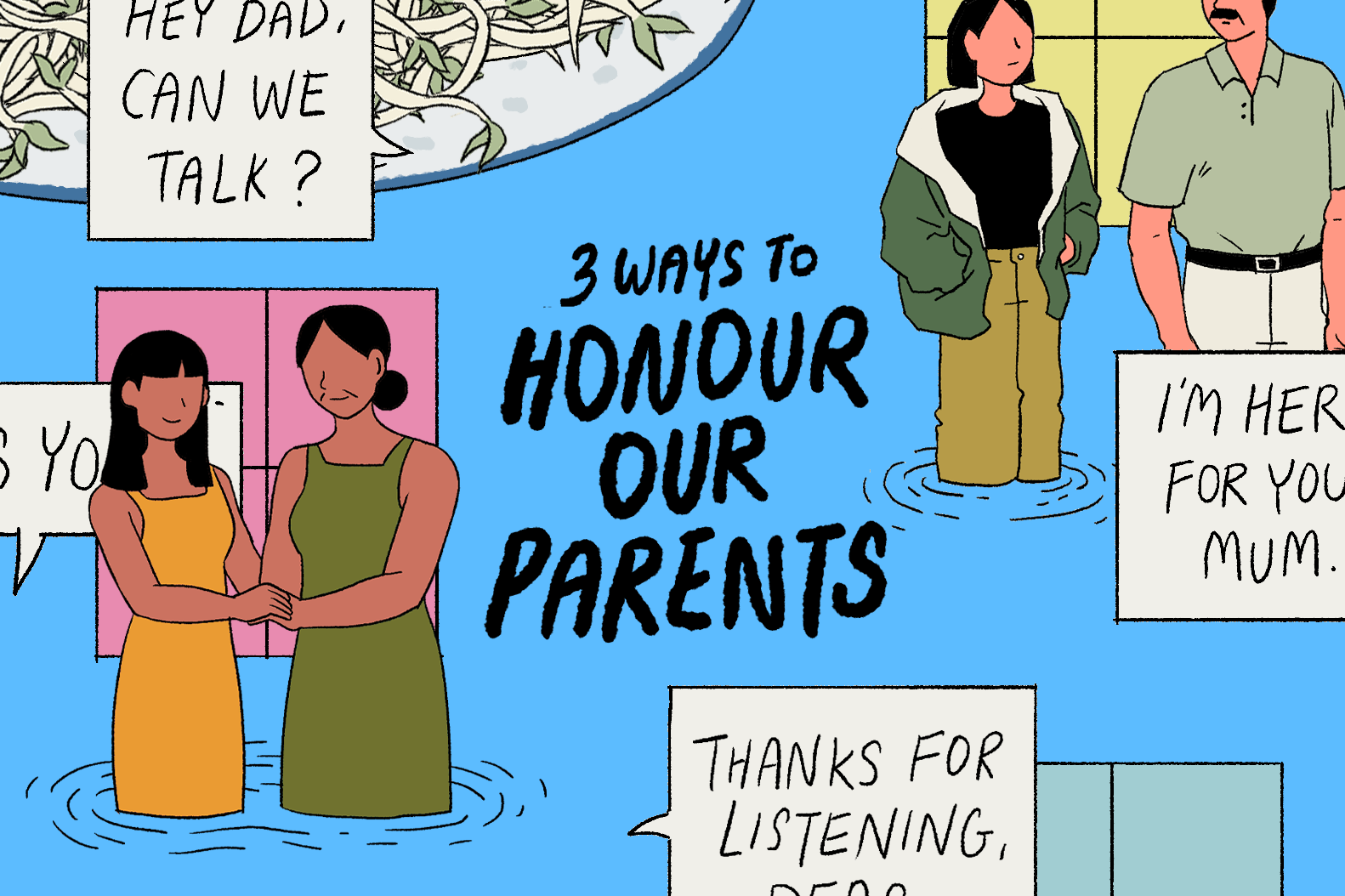I was at a friend’s house one day when she introduced a new game to me.
“It’s quite a fun game!” she promised, and promptly laid a pack of cards on the table.
This brought much excitement to the rest of my friends, who knew what the game was about.
Clueless, I agreed to play what looked like a simple game.

The next two hours, however, proved to be the most uncomfortable time of my life as the game involved sexual innuendo, dark humour and plenty of vulgarities.
I left earlier as I had another meeting at night, but I berated myself on the train ride home and asked myself why I didn’t stop playing the moment I found out what kind of game it was.
Although the Bible doesn’t explicitly say we can’t play such games, I felt that I had… let God down a little. I felt distant from Him and extremely empty.
Thankfully, He stopped my self-condemnation, forgave me, and led me to a deeper reflection with Him.
And after contemplating for a while, I had a few answers to why I didn’t stop playing and why I felt this emptiness.
Saying no and missing out
First, I wanted to fit in. I didn’t want to be labelled as the “holy” person.
There were also social repercussions that I envisioned in my mind. Would I lose them as friends? Would they be offended by how “uptight” I was?
Apart from me, all my friends had played the game before. I didn’t want to be excluded from what sounded like a fun game.
I’m sure many of us can relate to feeling this intense peer pressure, and the fear of missing out.
We know our convictions. Yet when we are placed in a real-life situation, we compromise on our beliefs for a sense of belonging in this world.
However, God calls us to live a life of commitment, not one of compromise.
I realised that my worries were ones I needn’t have had, if I fixed my eyes on God and not on man.
We don’t have to scramble for the approval of man when we already belong to Jesus.
I pray that as we remain in Jesus daily, His approval will be the only thing that matters to us, and that we will be like Him: In the world, but not of it (John 17:16).
I wanted deeper connections
I also realised that this sense of emptiness I felt after the game resulted from not having made any deep connections in those two hours.
The nature of the game made conversations very superficial. We joked around, but we never connected on a deeper level — which is actually what holds friendships together for the long haul.
What was on their hearts? What were they going through? How were they, really?
I’d yearned for such heart-to-heart connections, yet this longing was met by meaningless talk. No wonder I felt empty.

3 tips on enjoying leisure time wisely
Does this mean we can’t play games at all? Certainly not!
I believe that God is the one who created leisure, and He loves to see His children having fun! He knows how best to have fun in a way that honours Him.
With that in mind, how can we be salt and light in any setting while representing Jesus correctly?
1. Consider potential “harms”
Harm is definitely a good indicator of whether we should play a game or not.
A group of people I know once played Burning Bridges. They thought it was harmless, until it wasn’t. A girl cried, a guy was mocked, and in short, the group never met up ever again because everyone left hurt, awkward or bitter.
In thus example, people were harmed emotionally — but I believe that people can also bring spiritual harm to others or themselves through certain games.
One obvious example of games that can cause spiritual harm would be games relating to the supernatural.
Things to do with the occult, and that which involves toying with the supernatural recklessly, can expose us to grave spiritual danger.
Spiritual harm can also come in the form of games that directly disobey God.
Such games involve blaspheming God, dishonouring our parents and defiling ourselves with unkind words that are rashly said.
Once we are aware of these dangers, and can articulate the harm done not just to ourselves but also others, I’m sure we’ll be equipped to make better choices about the games we play.
2. Discern with the Holy Spirit
For games that fall in the grey area — like mahjong for example — we need the Holy Spirit’s wisdom and guidance.
I have friends who love God deeply and are convinced that there is nothing wrong with playing mahjong, as long as it does not involve money or alcohol.
They treat it like any other board game that can bond people, and also as a way to extend hospitality to friends and neighbours.
On the other hand, I also have friends who choose not to play mahjong at all, because they are concerned about what it might convey to people.
Out of their love for others, they are extra careful about the games they play so that they do not stumble them (1 Corinthians 8:9).
This is why we need discern together with the Holy Spirit what we should play, when we should play and who we should play with.
3. Consider alternatives
Don’t think a particular game is that good? There are so many other games for us to play!
Whether it’s console games, board games or phone games, we actually have many great options to choose from.
If you also desire deeper, richer and more meaningful conversations, but don’t know how to start one without sounding cringy or awkward, there are some games that can help!
Card games like SmolTok, Table Talk, We’re Not Really Strangers and Give Me A Hand make for great platforms from which genuine conversations can be sparked.
You get to find out more about those you are playing with, and connect with them on a heartfelt level.
It can really be quite life-giving and cathartic to bare one’s soul when you create safe and friendly opportunities through tools like these.
Side note: Games can also reveal what our friends are really like.
If your friends force you to do things against your conscience, they’re probably not very good friends you’d want around.
What we play matters as much as who we are hanging out with.
After all, our friends have a great deal of influence over our lives (Proverbs 13:20), so we should be mindful of them in our pursuit of Christlikeness.
What kind of bridges will you build?
At the end of the day, it boils down to one thing: Crowning God as King over all areas of our lives.
Whether it’s work, study, relationships or entertainment — Is He Lord over every aspect of our lives or just Lord when we’re in church?
I’d like to point us to the words of Paul in 1 Corinthians 6:12a: “‘Everything is permissible for me’— but not everything is beneficial.”
… it boils down to one thing: Crowning God as King over all areas of our lives.
The question we ask ourselves shouldn’t be can I play this game but should I play this game — especially in light of what it might achieve, its alternatives and most importantly what the Holy Spirit says.
May we keep our Christian witness pure so that our friends will see that God is real.
Have fun, but also have your conscience clear before God and man!
- What games do you usually play? Do these add to your walk with God or take away from it?
- How can you use games as a platform to connect with people and bless them?
- Based on the author’s sharing, what is one thing you need to do differently in your leisure or engagement with others so as to honour God?









